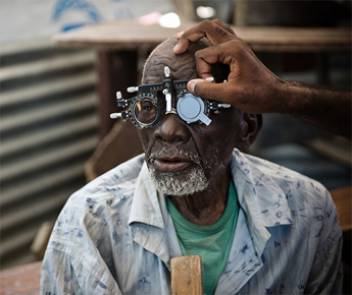 Lianne Murphy from our Affiliate Age Action Ireland writes about her time at the United Nations to discuss older people’s rights.
Lianne Murphy from our Affiliate Age Action Ireland writes about her time at the United Nations to discuss older people’s rights.
This is my first time at the Open-ended Working Group on Ageing (OEWGA) at the UN in New York. I have studied human rights law and the different mechanisms at the UN so it was exciting for me to see it in action.
It is also the first time Age Action Ireland has attended and it is important to send a message to the Irish Government that we are engaged with the process to secure a new UN convention on the rights of older people. This is important for our lobbying and political advocacy work.
Discussions on a new convention
The first day of the OEWGA began with interventions from Member States on their positions regarding a new convention on the rights of older people. Predictably enough the EU came out with their status quo position which is that a UN convention is not required.
There was however some positive movement on positions by some Member States. Indonesia, Egypt and Nepal indicated that they are open to supporting a convention. There was as usual strong support from Latin American countries and many references were made to the recent agreement of African States to support the call for a convention.
Access to work in Ireland
A session on Tuesday focused on social security and the right to health. I got the opportunity to intervene at the session on discrimination and access to work and spoke about the damaging mandatory retirement policy in Ireland, a session where there was also a fantastic presentation from Issy Doron of the University of Haifa in Israel identifying the rights of older people as a social justice issue.
As the meeting went on, positions of Member States did not change as such but we did see a softening of positions and agreement that the rights of older people are not fully protected across all regions of the world.
However the process needs to move forward and we need to discuss what elements could be included in a convention. I hope that this will be discussed in more depth the next time the OEWGA meets.
Optimistic about a convention
Despite the lengthy process it takes for a new convention to come into being at the UN, it is important to continue with this work. And I am optimistic that a convention will come into force. The train has left the station and it will be very difficult to stop it reaching its destination.
I leave New York with increased motivation to further build support for a convention in Ireland among civil society and at the governmental level.
Read more about our work at the UN Open-ended Working Group on Ageing.
